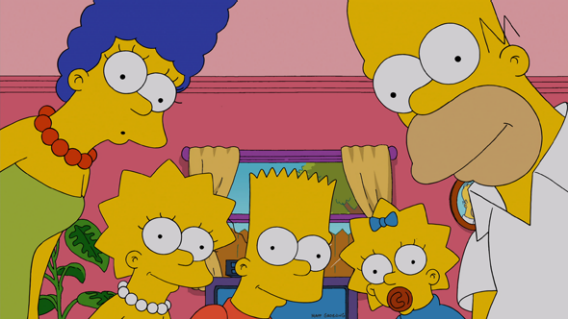Scene 1, starring Alexander Harkavy (1928):
The problem with tracing meh over time, as with so many fleeting interjections, is that it’s terribly underrepresented in the linguistic and lexicographical literature. A variant of meh, namely mnyeh, famously appears in the works of the late academic and humorist Leo Rosten, with extended treatment in his Hooray for Yiddish. But Rosten’s work is often disparaged by experts in Yiddishology, and, in any case, there’s no evidence that mnyeh is even a Yiddish word.
Now I’m no Yiddishist, so when I have a Yiddish question I turn to Ben Sadock, who studied the language as a grad student at Columbia University and received the first annual Yiddish Book Center Translation Grant. I’ve been in touch with Sadock about meh over the years, and last year, when I was researching a column on the interjection for the Boston Globe, he found a smoking gun of sorts in Alexander Harkavy’s Yiddish-English-Hebrew Dictionary (4th ed., 1928).
Here is Harkavy’s treatment of the word מע (me):
The definitions as an interjection meaning “be it as it may” and an adjective meaning “so-so” track fairly closely to current uses of meh. As you can see, Harkavy defines it separately as a “bleating” interjection, which matches his entry in the 1898 edition of his dictionary: baa! bleat! In fact, I once mentioned the use of meh as a goatlike exclamation and even referenced the 1936 Yiddish song “Yidl Mitn Fidl,” in which bleating meh rhymes with disapproving feh. Sadock doesn’t think the two mehs are necessarily related, despite the suggestive parallel of bah and baa in English. I’ll trust him on that.
Scene 2, starring W.H. Auden (1969):
The British poet W.H. Auden didn’t think much of the first lunar landing, and he wrote a poem about it.
Worth going to see? I can well believe it.
Worth seeing? Mneh! I once rode through a desert
and was not charmed: give me a watered
lively garden, remote from blatherers
Auden’s mneh sounds like Rosten’s mnyeh, but Auden was no Rosten, to say the least. Still, since he was living in New York in 1969, we can imagine him hearing the Yiddish-style expression of apathy and finding it an appropriate vehicle for his lack of interest in the exploits of Armstrong and Aldrin. I found a 1973 collegiate poetry journal on Google Books, which had this to say: “Stanza six offers a new word to our word-hoard: the exclamatory Mneh! A pseudo-borrowing from Mad magazine?” Auden reading Mad in New York is an enticing image, of course. But I don’t think he picked up the expression that way, despite the fact that founding editor Harvey Kurtzman gave the magazine a Yiddish spin. I spent a fair bit of time skimming through early issues of Mad in a digital archive and found only the stronger interjection feh rather than meh, mneh, or mnyeh.
Scene 3, starring the writers of The Simpsons (c. 1994):
One reason I’d hoped to find meh, or a close variant, in the pages of Mad is that I imagined it would be the missing link explaining why the writers on The Simpsons enjoyed using it so much. I suppose I expected to find a tidy explanation, like the story of how Dan Castellaneta, the voice of Homer Simpson, translated the “annoyed grunt” of the show’s early scripts into d’oh! by creating a staccato version of the do-o-o-o used by character actor James Finlayson in the Laurel and Hardy comedies. After determining that the earliest known appearance of meh on The Simpsons was in Season 6’s “Sideshow Bob Roberts” (first aired Oct. 9, 1994), I got in touch with Bill Oakley, who co-wrote the episode with his writing partner Josh Weinstein. Oakley found the first draft of the script (from Apr. 28, 1994) and sent me the passage with meh in it, in which Lisa goes to the Springfield Hall of Records to blow the lid off a rigged election:
INT. HALL OF RECORDS—A FEW MINUTES LATER
Lisa waits at the main desk. A clerk arrives and plops down a two-foot tall pile of fan-fold computer paper covered with tiny print.
CLERK
Here you go. The results of last month’s mayoral election. All 48,000 voters and who each one of them voted for.
LISA
I thought it was a secret ballot.
CLERK
(DOESN’T CARE) Meh.
A wonderful specimen, but Oakley couldn’t remember where he and his fellow writers picked up meh. So I spent some time tracking down John Swartzwelder, who was responsible for “Hungry Hungry Homer,” the high water mark in meh usage on The Simpsons.
Though Swartzwelder is the most prolific of all Simpsons writers, he has led a reclusive life writing novels since leaving the show in 2004. After finding a way to send him a message, I was amazed to actually get a response from the man called “the J. D. Salinger of comedy writing.” He didn’t recall putting meh on the show before his “Hungry Hungry Homer” episode, which aired in 2001, some seven seasons after meh began to be used by Simpsons characters. Oakley, though, suspects meh might have appeared in an early Swartzwelder-penned scene that never made it to air. And Swartzwelder did have a memory of where he first came across meh, though it wasn’t in Mad. “I had originally heard the word from an advertising writer named Howie Krakow back in 1970 or 1971 who insisted it was the funniest word in the world,” he told me. So let’s thank Mr. Krakow for his unwitting role in the spread of the meh meme.
A version of this post originally appeared on Language Log.
